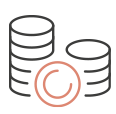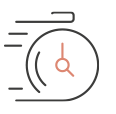The evolving role of computers, codes, algorithms, and artificial intelligence is spreading in the world and is already reflected in the PISA mathematics framework. From 2022, the framework includes skills of computational thinking that are intertwined into the mathematical problem-solving cycle. These skills include pattern recognition and decomposition, using algorithms to analyze and solve problems, and even teaching a computer how to use statistics and make predictions. By including these skills in the PISA framework, the OECD sends a signal to education systems that they should start thinking more systematically about how to incorporate them in their curricula.
To ignite such thinking in Israel, we approached the Academy of Science and Humanities. The Academy’s department of education has a high reputation and experience in convening the professional community of policy makers, scholars and practitioners around knowledge and knowhow from science and research. The Academy proposes to form a core group of five experts around computational thinking.
Over a period of nine months, the group will lead a study process where they will organize four meetings. To these meetings they will invite Israeli and world-experts including academics, government officials and educators, who have expertise in computational thinking, mathematics, and the PISA mathematics framework. They will concentrate on providing answers to the following questions:
- What would be an agreed upon definition of “computational thinking” and its specific components that would make sense and be worthwhile to educators in the areas of mathematics and computer science?
- What elements of computational thinking are already integrated in the mathematics and computer science curricula for secondary schools in Israel, and what is still missing?
- How are these topics being integrated in other countries and what are specific pedagogies and best practices of teaching that have been proven successful in these education systems?
- Are there concrete recommendations to the Israeli education system regarding if and how to integrate computational thinking into the curriculum, with special emphasis on advanced AI capabilities in excellence classes in middle school and the five-unit tracks in high school?
The Academy’s group will prepare a draft report of analysis and recommendations that will be discussed at a one-day conference of 100 participants which they plan to convene in March 2024. Following the conference, a final report will be published by September 2024 and shared with the professional community.
* The text above shows the grant as approved by the Foundation’s Board of Directors / Grant 522


